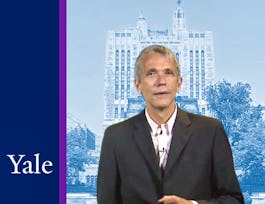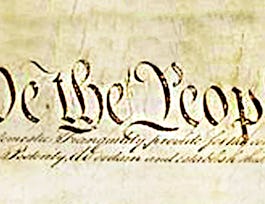This course will give you a glimpse into six different areas of American law: Tort Law, Contract Law, Property, Constitutional Law, Criminal Law, and Civil Procedure. You will gain insight into the complexities and dilemmas that arise from the application of law in different settings, and what is distinctive about American approaches.


An Introduction to American Law
Taught in English
Some content may not be translated
189,581 already enrolled
(4,739 reviews)
Skills you'll gain
Details to know

Add to your LinkedIn profile
7 quizzes
See how employees at top companies are mastering in-demand skills


Earn a career certificate
Add this credential to your LinkedIn profile, resume, or CV
Share it on social media and in your performance review

There are 8 modules in this course
What's included
3 readings
Tort law governs how people may sue each other civilly (as opposed to criminally) in order to receive compensation for harms or injuries other people caused them. In this module, Professor Allen will explore the goals of tort law through a historic case. She will address what makes tort law distinct and issues surrounding negligence and liability.
What's included
6 videos2 readings1 quiz
Contract law governs how promises between two individuals are enforced. Few areas of law impact our daily lives as much as contract law, and in this module you will gain a deeper understanding of what a contract is and what makes it enforceable. Professor Wilkinson-Ryan will address what constitutes a contract, why the law enforces them, the legal meanings of words in contracts, and the important requirement of consideration. Expectation damages, or the amount a court orders someone who breached a contract to pay will also be explored, all through hypothetical and real cases.
What's included
4 videos2 readings1 quiz
Property law governs the relationship between individuals and things, known as property. In this module, Professor Balganesh will explore the differences between property and tort and contract law and about several specific examples of property law in action: adverse possession, landlord/tenant, and licenses. You will learn about what makes U.S. property law distinct - its origins in common law, imprint of legal realism, and pragmatism.
What's included
4 videos2 readings1 quiz
The study of constitutional law is among the most exciting parts of the law because it provides for the structure and functioning of the U.S. government. In this module, Dean Ruger will address the document itself, how it has been applied over time, the history of the document, and what makes it unique. The structure of the U.S. government as a government of limited, separated powers will be explored along with the important individual rights the Constitution provides and how the U.S. Constitution compares to others around the world.
What's included
4 videos2 readings1 quiz
In this module, Professor Morse will focus on the basics of criminal law, an area of law so exciting that countless TV shows and movies have been based on it. The major aspects of criminal law will be discussed - why we impose punishment, when we impose the most punishment, and how the state proves a criminal case. Defenses to criminal charges, which are divided into justifications and excuses will also be addressed.
What's included
4 videos2 readings1 quiz
In this module, Professor Wolff will introduce us to some of the major issues in civil procedure law. Civil procedure is the study of the rules of court that must be followed by the judge and parties in civil cases (as opposed to criminal cases – criminal procedure is a whole other area of the law, but law students learn civil procedure first because it gives the structure of typical trials). The essence of a law school civil procedure course is the study of the Federal Rules of Civil Procedure. A copy of these is linked in the syllabus for you to scan. The rules tell you how to file a lawsuit and how the court must function while it is considering a lawsuit. Professor Wolff will introduce you to the doctrinal area of procedure and will highlight some of the major modern issues in procedure law.
What's included
4 videos2 readings1 quiz
What's included
1 quiz
Instructors



Offered by
Recommended if you're interested in Law

Yale University

Yale University

University of Pennsylvania

Yale University
Why people choose Coursera for their career




Learner reviews
Showing 3 of 4739
4,739 reviews
- 5 stars
85.63%
- 4 stars
12.67%
- 3 stars
1.24%
- 2 stars
0.33%
- 1 star
0.10%

Open new doors with Coursera Plus
Unlimited access to 7,000+ world-class courses, hands-on projects, and job-ready certificate programs - all included in your subscription
Advance your career with an online degree
Earn a degree from world-class universities - 100% online
Join over 3,400 global companies that choose Coursera for Business
Upskill your employees to excel in the digital economy
Frequently asked questions
Access to lectures and assignments depends on your type of enrollment. If you take a course in audit mode, you will be able to see most course materials for free. To access graded assignments and to earn a Certificate, you will need to purchase the Certificate experience, during or after your audit. If you don't see the audit option:
The course may not offer an audit option. You can try a Free Trial instead, or apply for Financial Aid.
The course may offer 'Full Course, No Certificate' instead. This option lets you see all course materials, submit required assessments, and get a final grade. This also means that you will not be able to purchase a Certificate experience.
When you purchase a Certificate you get access to all course materials, including graded assignments. Upon completing the course, your electronic Certificate will be added to your Accomplishments page - from there, you can print your Certificate or add it to your LinkedIn profile. If you only want to read and view the course content, you can audit the course for free.
You will be eligible for a full refund until two weeks after your payment date, or (for courses that have just launched) until two weeks after the first session of the course begins, whichever is later. You cannot receive a refund once you’ve earned a Course Certificate, even if you complete the course within the two-week refund period. See our full refund policy.





